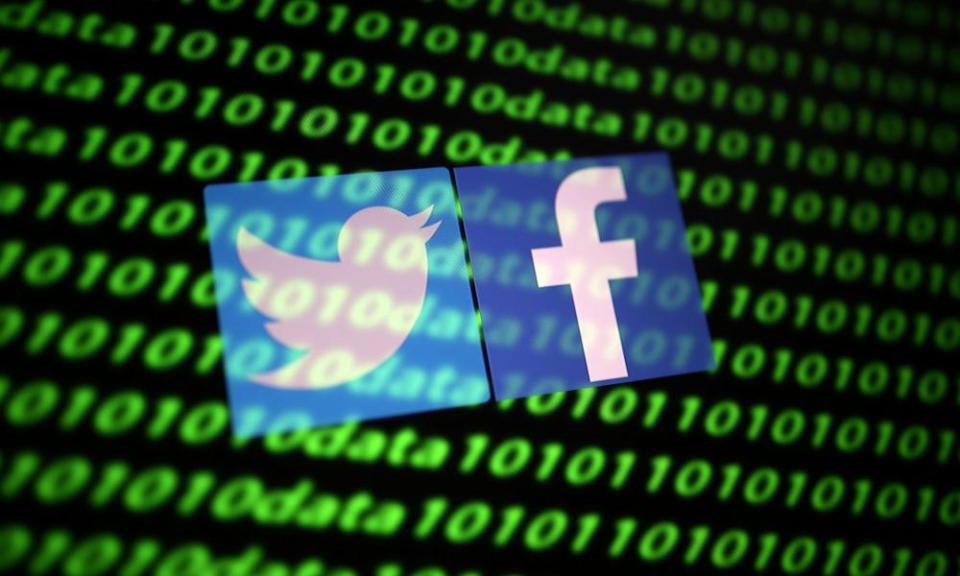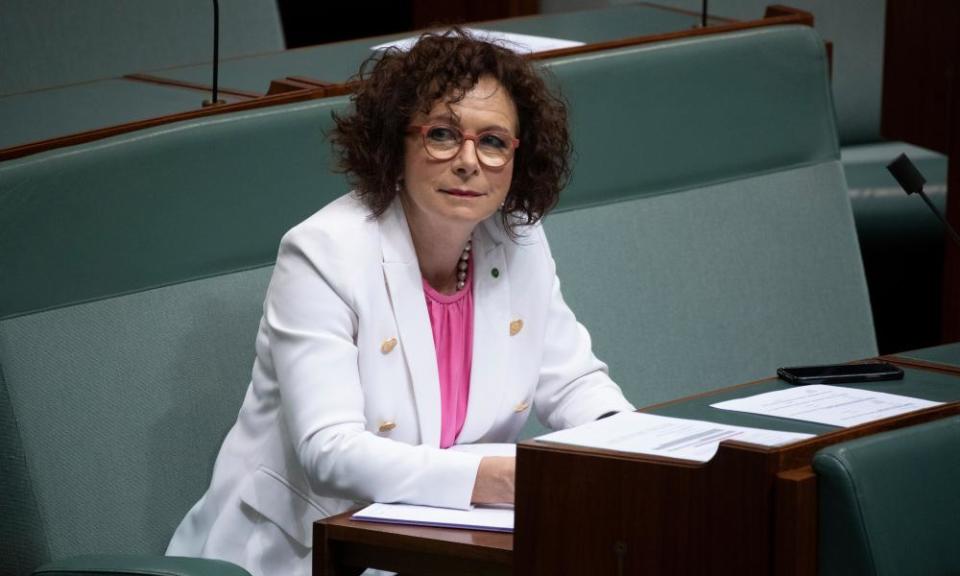'Law unto themselves': the Australian battle to curb Facebook and Twitter's power

Nationals MP Anne Webster and Labor MP Sharon Claydon are less concerned with why Donald Trump was taken off social media, and more concerned with what platforms such as Facebook are doing to stop online defamation and abuse.
Webster and Claydon are the co-chairs of the Parliamentary Friends of Making Social Media Safe, a group to “highlight the environment of social media and the risks associated” and to make the platforms more accountable. It now boasts more than 50 members thanks partly to Twitter and Facebook’s response to last week’s attack on the US Capitol.
For Webster, it’s personal. After winning a defamation case against a conspiracy theorist who falsely accused her of being “a member of a secretive paedophile network”, she wants Facebook treated as a publisher.
The decision of Twitter and other social media platforms to first remove posts and then suspend Trump’s account prompted outrage among some conservatives, including National MP George Christensen and Liberal MP Craig Kelly.
Related: Craig Kelly decries censorship but blocks dissenting voices from his Facebook page, constituents say
The outspoken pair both favour changes to stop social media platforms from censoring any lawful content created by their users – a push in the direction of more free speech and less responsibility for content on the part of the platforms.
Webster tells Guardian Australia although she’s glad the Trump controversy and the Chinese foreign ministry tweet accusing Australia of war crimes in Afghanistan had “put fire under the debate” there is now a broader discussion about the regulation of social media to be had.
Webster says social media companies “are a law unto themselves, largely”. Her defamation case “cost me dearly, both financially and emotionally” and Webster said most aggrieved people are not able to afford to fight defamatory posts in court.
The legal position on social media defamation is unclear. University of Sydney professor David Rolph, a defamation law expert, says that “in principle” the social media companies can be liable.
Just as media companies were held liable for comments on their Facebook page in the Dylan Voller case because they were “responsible for everything that flows” from having setting up a public page, “that analysis might extend to the social media platform itself”, Rolph says.
He says there are also “problems of jurisdiction and enforcement” in taking on overseas based companies, so plaintiffs rarely go after the internet giants, and a possible immunity in the Broadcasting Services Act if social media can argue that they are an “internet content host”.
Webster says in her case Facebook’s handling was “appalling – it took months” and was only prompted by her taking legal action.
“Freedom of speech must be valued but it shouldn’t give people the right to incite a riot or lie about people.
“Social media companies have profited from online conversations but there are rights and responsibilities … If they’re not held responsible the number of falsehoods will increase at the rate of knots.”

Mia Garlick, Facebook’s director of policy in Australia and New Zealand, has told a parliamentary committee the company did geo-block some posts from Webster’s accuser and the account was removed after repeated breaches of community standards. She blamed “additional legal complexities in that case” for the delay.
Claydon got involved due to her constituents’ experiences of “online harassment, posting intimate photos, cyber-stalking, and of women who were found by family violence perpetrators through social media platforms”.
“I had a growing interest because there were posts and pages that allowed the abuse of women – and when people complained they fell into a deep dark void somewhere, and the complaints didn’t really go anywhere.”
According to Claydon, users agree not to peddle hate speech, incite violence, or deliberately spread dangerous misinformation – so the platforms are not doing anything wrong by removing users who breach the terms, such as Trump.
For Claydon, the de-platforming of Trump raises the question “why it took four years when he’s clearly in breach of their terms” – and the fact social media platforms have found courage only on the eve of a new presidency shows the limits of self-regulation.
“They regard themselves as big global entities, and are not particularly accountable to anyone,” she says.
According to the e-safety commissioner, 14% of Australians have faced online hate speech. Claydon wants to build cross-party support to prevent social media becoming “a dangerous weapon for half our citizens”, rather than “let those with the biggest mouths rush out and determine the shape” of the reform conversation.
Related: Inside the hyper-local world of Facebook’s ‘buy nothing’ groups
Despite calls from Christensen to swing back in the direction of free speech, creating a safer space is also the direction the government is heading in.
In December, the communications minister, Paul Fletcher, released a draft online safety bill proposing to give the e-safety commissioner powers to order the take-down of harmful content.
The e-safety commissioner, Julie Inman Grant, has said the bill would ensure moderation of social media is applied “fairly and consistently” but does not address concerns from some in the Coalition about de-platforming.
The legislation would be the first of its kind to tackle not just illegal content “but also serious online harms, including image-based abuse, youth cyberbullying and … serious adult cyber-abuse with the intent to harm”.
There is also a voluntary code on disinformation, to be devised by the social media giants and enforced by the Australian Communications and Media Authority, expected to be finalised by mid-year.
While senior Coalition figures including the acting prime minister, Michael McCormack and the deputy Liberal leader, Josh Frydenberg, expressed disquiet at Trump’s removal, there were no suggestions the government would change course to accommodate Christensen’s call to abolish community standards in favour of anything but unlawful speech goes.
Fletcher has signalled he is cold on the idea of going beyond the existing package, arguing that it already creates “a public regulatory framework within which decisions about removing content are made by social media platforms (and, if necessary, can be overridden by decisions of government)”.
One common strand in reform calls is that participants want to see greater transparency around decisions that are made to block posts or remove users.
The Australian Competition and Consumer Commission chairman, Rod Sims, who led the digital platforms review, has said given the degree of control they exercise on what we see and read “we definitely need the government to get to grips with this; we can’t just leave it with the digital platforms”.
The e-safety commissioner says the platforms “aren’t always transparent in how they enforce and apply these policies and it’s not always clear why they may remove one piece of content and not another”.
Transparency would be improved by the online safety bill’s basic online safety expectations, which would “set out the expectation on platforms to reflect community standards, as well as fairly and consistently implementing appropriate reporting and moderation on their sites”, she tells Guardian Australia.
“This could include, for example, the rules that platforms currently apply to ensuring the safety of their users online, including from threats of violence.”
Liberal MP Trent Zimmerman supported the platforms’ decision to remove Trump, who he accused of “stoking the flames” of a threat to the peaceful transition of power in the US.
Yet the episode demonstrated the “inconsistent standards being applied” as Trump was removed while “many authoritarian leaders remain able to use these platforms for their propaganda”.
“We need clear, transparent rules. And it would be helpful to clarify what avenues there are to seek explanation or appeal those decisions.”
Despite unease at the highest levels of the Australian government about de-platforming, the prevailing mood is still for more – not less – regulation.
For those such as Webster or Claydon’s constituents, basic enforcement of existing standards would be an improvement.

 Yahoo Finance
Yahoo Finance 